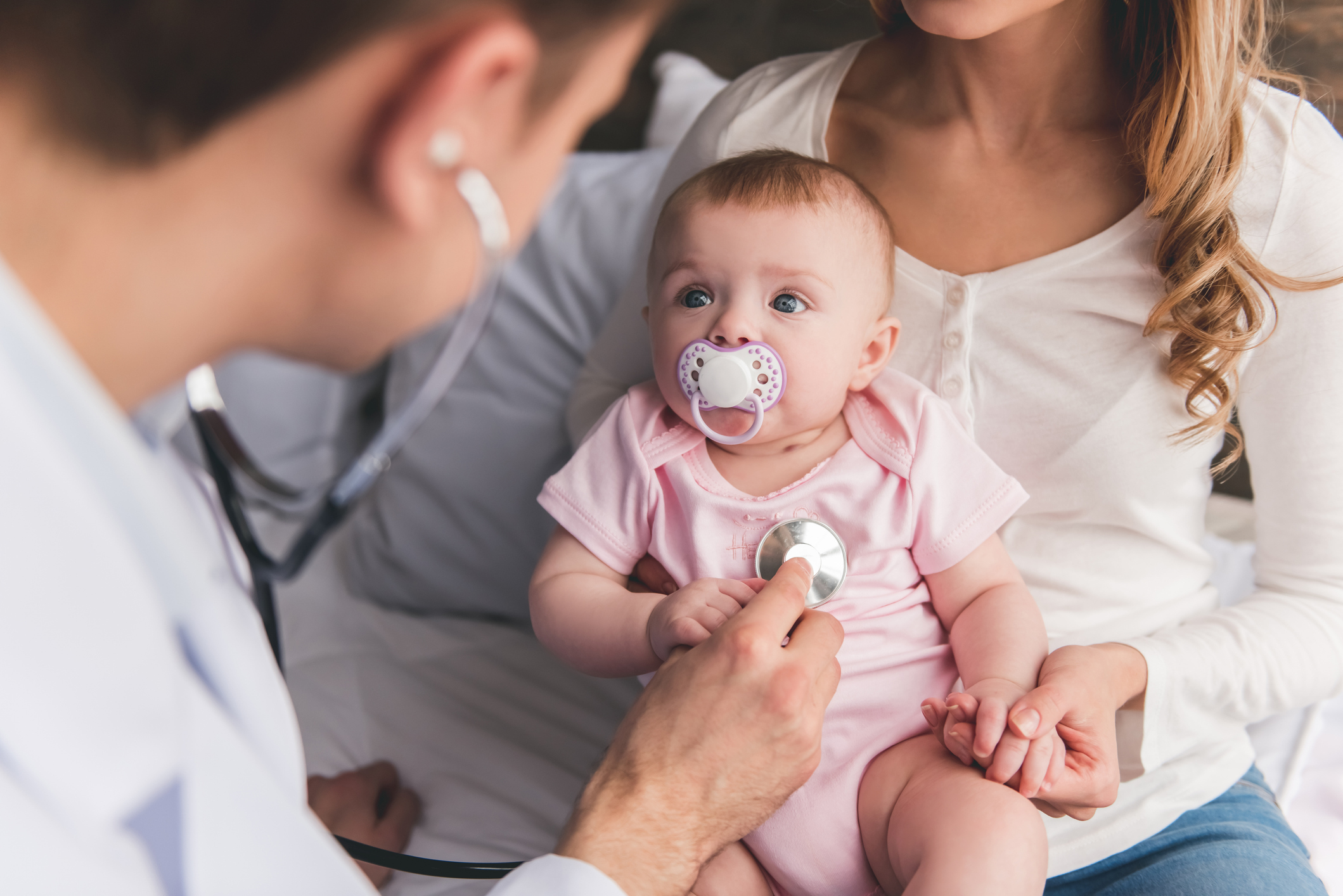
Did you know that most children will become infected with RSV (Respiratory Syncytial Virus) at least once before their 2nd birthday? For healthy children, RSV can present (and pass) like the common cold. But it can also make some children very sick, and is the leading cause of hospitalization for infants younger than 1 year.
We asked pediatric hospitalist, Dr. Chase Parsons, the expert that leads our Ultimate Safety Class, to fill us in on all things RSV. See his answers below:
Why was an RSV vaccine created in the first place? What’s the latest on how big of a concern or risk this is for babies & their parents?
RSV is the most common cause of hospitalization for children under 1 year of age. It’s so common that we call late Fall to early Spring “RSV Season” in the Hospital. While it can cause an illness that children typically recover from, kids who were born premature or have underlying lung or heart issues are at higher risk of severe infection and possible long-term complications from RSV. As we know from the pandemic, the more we can keep patients out of the hospital and competing for the same resources, the better. Compared to pre-COVID-19, hospitalizations during the respiratory season for respiratory illness have been ~double the past two years. With improved vaccinations for RSV, I’m hoping we can soon put it in the category of better-controlled pediatric infections like chicken pox and pertussis (the whooping cough).
As far as parents go, adults typically have a mild form of RSV, but older adults or those that are immunocompromised can be at risk for severe infection.
What’s the latest on RSV Vaccines?
Currently, there are two general types of RSV prevention. One is an immunization for infants and younger children, and the other is a vaccination for pregnant people. Pregnant people or older adults should get a vaccination for RSV.
The immunization for infants is actually a “monoclonal antibody” injection called nirsevimab (Beyfortus) that most kids only need to get once. You might have heard of an earlier version of this immunization called palivizumab (Synagis) which was generally reserved for kids with prematurity or underlying lung issues – this was because it was expensive, required monthly immunization to ensure adequate protection, and was frequently in short supply.
Is there still a vaccine shortage?
We had a bit of a shortage of nirsevimab during the 2023-2024 RSV season, but from what we can tell at my hospital, it should be in good supply this season. Sanofi and AstraZeneca are the big manufacturers of the immunization and are reporting that there should be enough for babies eligible for the vaccine during this RSV season.
Who should get the vaccine & when?
Great question! For pregnant people the vaccination is given in the third trimester if the due date is near or during the RSV season; vaccination during this time protects the infant during their first RSV season.
If the birthing parent did not receive the RSV vaccine during pregnancy the infant should get immunized. If an infant is born near the start of or during the RSV season, nirsevimab can be given prior to discharge from the hospital. Or, if your child hasn’t yet gotten nirsevimab it should be given before the start of or during RSV season if they’re less than 8 months old. Some children at increased risk of infection (like those with underlying lung or heart disease) may be eligible for a second dose of the immunization during their second RSV season. One dose of the immunization should provide at least 5 months of protection.
As far as grandma and grandpa, older adults over 75 years of age should be vaccinated for RSV one time. Older adults at increased risk of severe RSV (e.g., chronic heart, lung, or kidney disease) should have the RSV vaccination after age 60.
How can I protect my baby if they can’t get the shot?
Most babies can get nirsevimab - unless they have a history of an allergic reaction to the vaccine or its components. If they can’t get the shot, though, remember that RSV spreads easily! Wash your hands frequently. And even if they do get the vaccine, try and avoid taking young children to crowded indoor places and stay away from adults and children with upper respiratory symptoms when possible.
If I want to get my baby vaccinated, who should I talk to?
If your baby was born in the hospital, talk to your pediatric care team before discharge. If you’re now home with your baby, start with their pediatrician - they’ll walk you through timing, availability, and any concerns you may have.
Any other common RSV related questions you receive from parents.
Remember, even if your child contracts RSV this season, most kids just need your love and care during the course of their illness:
- Keep them comfortable with nasal saline or suctioning
- If your child has a fever and / or is uncomfortable you can give Tylenol (or ibuprofen if older than 6 months old)
- We don’t recommend other medicines like cough medicine or decongestants for kids older than 5 years of age
- Make sure they’re adequately hydrated with smaller, more frequent feeds
- Call your pediatrician or take them to the doctor’s office if it looks like they’re working hard to breathe, not taking enough hydration, or if you’re worried
I know all of this was a lot of information, but the more you can do to keep your child out of the hospital (and doctor’s office) this respiratory virus season the better! Immunizations play a critical role in protecting babies' health by equipping their developing immune systems to fight off serious and potentially life-threatening diseases, ensuring they grow up strong and healthy. Immunizing infants not only shields them from infections early in life but also contributes to the establishment of a safer community by reducing the spread of preventable illnesses.
For more on RSV along with treating other upcoming seasonal illnesses like fevers, the common cold, the flu, and croup, check out our Ultimate Safety Class, led by Dr. Parsons.


